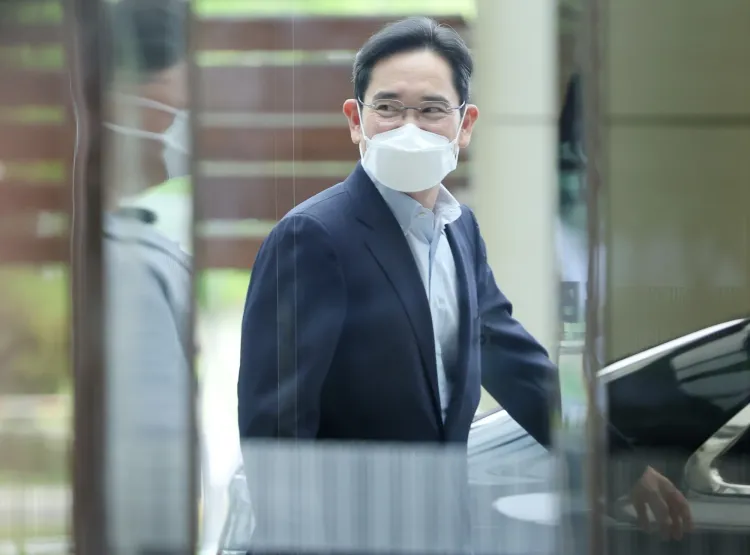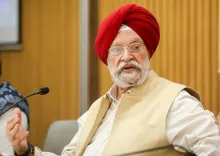Did the Supreme Court Finalize the Acquittal of Samsung Chairman Lee?

Synopsis
Key Takeaways
- The Supreme Court has finalized Lee Jae-yong's acquittal.
- This ruling concludes a protracted legal battle regarding the 2015 merger.
- All charges against Lee were dismissed, including serious allegations.
- Thirteen others involved in the case were also acquitted.
- Implications for corporate governance in South Korea remain significant.
Seoul, July 17 (NationPress) The Supreme Court has officially confirmed the acquittal of Samsung Electronics Chairman Lee Jae-yong regarding a contentious merger case that has its roots in 2015. This ruling arrives nearly five years after Lee faced accusations of unfair trading, stock price manipulation, and accounting fraud linked to the merger of Samsung affiliates, Cheil Industries and Samsung C&T Corp, as reported by Yonhap news agency.
This merger was pivotal for Lee's ambitions to take over the family-run conglomerate, especially following his father Lee Kun-hee’s heart attack the year prior. Prosecutors alleged that the merger and related irregularities were designed to fortify Lee's grip on South Korea's leading conglomerate while minimizing expenses.
In the initial trial, Lee was found not guilty of all 19 charges, and in the subsequent trial, he was acquitted of 23 charges, which included additional allegations. The Supreme Court rejected the prosecution's appeal, affirming the original decision without any errors.
The court also finalized the acquittals for 13 additional individuals involved in the case, such as Choi Gee-sung, the former leader of Samsung's now-defunct Future Strategy Office.
Earlier this year, the prosecution indicated plans to appeal the recent verdict regarding Lee's acquittal in the 2015 merger case to the Supreme Court. On Monday, the Seoul High Court upheld Lee's acquittal concerning accounting fraud and other irregularities relating to this controversial merger. The appellate court endorsed the not-guilty verdict for Lee, who was accused of participating in stock price manipulation and accounting fraud, amid suspicions about the merger's intent to facilitate control over South Korea's largest conglomerate at a lower cost, as reported.









